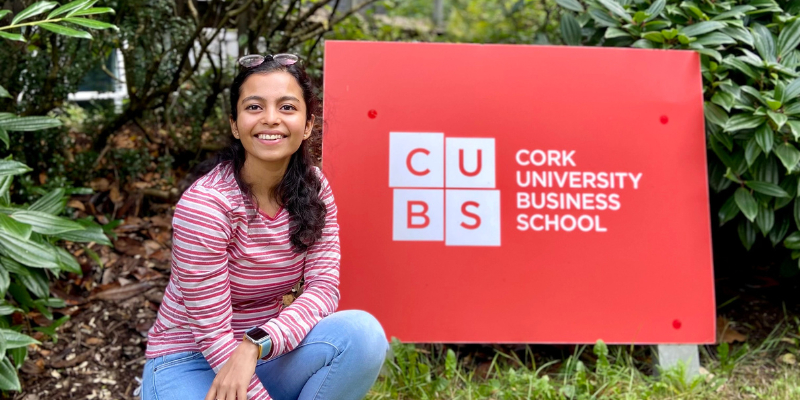
“Are you sure you want to leave your job to do a PhD?” is a question that I have been asked so many times by my peers and ex-colleagues that I have possibly lost count of it. I cannot deny that I've too had moments where I questioned or pondered it myself. Transitioning from the industry, back into academia can indeed be a daunting prospect, yet, here I am, currently in the third year of my PhD, reflecting aloud on the number of reasons this move has helped my personal and professional development as an individual.
My name is Prakriti Dasgupta, and I am a PhD researcher at the Department of Management and Marketing at Cork University Business School. Prior to this, I have professionally engaged as a Human Resources (HR) Consultant with a Global HR and Leadership Development firm back in India for three and a half years. During those years, I had gained a great deal of experience in managing end-to-end projects from conceptualising proposals to designing and implementing solutions for several Indian MNCs. Though I was often exposed to a range of real-world problems that in my view could have benefited from ‘out-of-the box’ solutioning, I was always told by my manager “not to reinvent the wheel”. No doubt, many of you reading this article, would have probably heard the same at some point in your careers. But this was one of the primary reasons why I turned towards academia, and more specifically research where I felt that my ideas would not only be encouraged, and acknowledged, but could potentially have a greater and more tangible impact.
.jpeg)
Having said that, it’s equally important for me to share how my industry experience has been helping me day-in and day-out, since the start of my PhD journey to this current day. So, as I embarked on my PhD, I initially found myself standing at the crossroads of two seemingly disparate worlds, but very quickly realised how my years of industry experience had equipped me with important, transferable skills and helped me develop a perspective that continually shapes my research journey.
The consulting life was always fast-paced, dynamic, sometimes ambiguous and where challenges and problem solving were a typical part of my workday. It was here that I honed my problem-solving abilities and learned how to adapt swiftly to a change—a skill that has proven invaluable in my doctoral studies so far. Moreover, the industry can be unrelenting when it comes to time management, which for me meant managing multiple client projects, and competing deadlines. These skills have also come handy, where I have often found demands of research, coursework, and teaching to often collide. But, perhaps the most significant takeaway for me has been the ability to collaborate and work in a team, which has helped me work effectively with my supervisors over these years. I was also pleasantly surprised to find that my industry experience was quite welcomed at CUBS and this validation of my background has been instrumental in building my confidence as a researcher, especially while communicating my research to both academic and non-academic audiences.

So, in case you are wondering if your industry background would count should you decide to pursue a PhD? In my experience, I found it to be quite empowering. At the same time, I also recognised early on, how the demands of academia can be different, with the focus often being on theoretical and methodological rigour, therefore it was quite important for me to consider ‘how’ and ‘when’ to leverage and apply my professional skills and experiences to my doctoral journey. In conclusion, my doctoral journey in CUBS so far, has been one of growth, learning, and self-discovery. Of course, there has been hard times and failures along the way, but that too has made me more resilient as an individual. Since the beginning of the journey, I have found myself embedded in network of support and care provided by my incredible team of supervisors, other departmental faculty members, and my PhD peer group, all of whom have been quite instrumental for my progress. The journey is ongoing, and I am eager to see how all of this unfolds.


